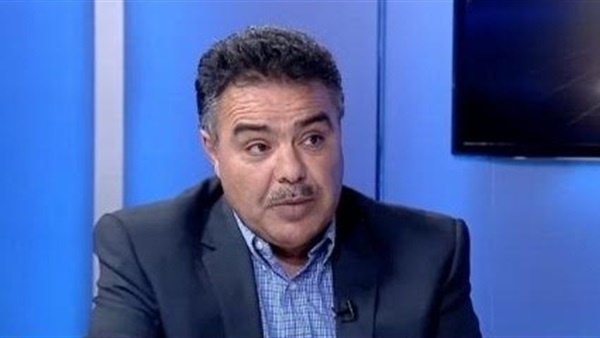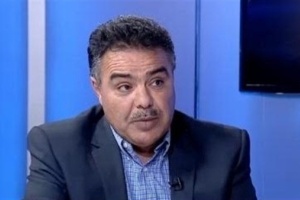By Abdullah Al-Kabir, a Libyan writer
The Political dialogue and dilemma of power

International influences cast a shadow over the political solution path, which is sponsored by by the United Nations mission, despite some rapprochement between some effective countries in the conflict, such as Turkey and Egypt, and their openness to their opponents in Libya, after Ankara received the envoy of Aqila Saleh, and the visit of an Egyptian diplomatic and intelligence delegation to Tripoli after a break of six years. However, this convergence does not mean complete coordination and identical visions regarding the conflict situation and the means for a solution. Cairo, after its conviction of the failure of Haftar's project to tighten his grip on power by armed force, and the near handover of the new authority in America to the reins of power, and the changes that will occur with the administration of Biden, as well as promising economic opportunities in Libya, this bold step was taken, moving far enough from the Abu Dhabi government, which through the speech of its media channels does not seem to be satisfied with this Egyptian turn towards the Libyan crisis.
The current Russian-Turkish rapprochement can be understood in the context of their apprehension about the American efforts to limit their growing influence related to the personalities and entities currently in power, therefore any attempt to overthrow them through the political dialogue forum will not be accepted by them.
Despite this blockage in achieving the basic goal of the Forum for Political Dialogue, the UN envoy Stephanie Williams announced the formation of a committee from the forum that includes 15 members and then increased it to 18 that includes all regions and directions with representation of women and youth, which means bypassing the first proposal of mechanisms and searching for acceptable alternatives, this prompted Aqila Saleh to further regional mobilization through more than one meeting in the east, as he became aware that his path to ascending the Presidency Council to succeed Al-Sarraj became longer and more tortuous, and the dispute between him and Haftar have become more apparent, and the Egyptian efforts have not succeeded in containing them.
The removal of Aqila Saleh from the authority positions is an inevitable issue for those who seek consensus and gather the scattered parts of the country, as it is difficult for Saleh to play this role, because his narrow tribal awareness falls short of surrounding the country and presenting a comprehensive and balanced discourse, even by assuming the position of the presidency of the Libyan Parliament, his vision was limited to the scope of his tribe. He finds himself only speaking about very dangerous national issues within the notables and elders of his tribe, while it is natural for those seeking the highest political position in the state to address all members of the people with all their components and directions.
In all her recent statements, the UN envoy did not stop reminding the exact date for the elections at the end of this year, and she is focusing with the Constitutional Committee to develop plans and proposals for the constitutional base for the elections, as the blockage of the way to form a unified government pushes to pressure the election paper, and she realizes that the majority do not want it. Rather, the head of the Supreme Council of State went to the point of declaring that it could not be held before two years ago!
There is an option that was not clearly presented, but the failure of the members of the Forum pushed it to the surface, which is the survival of the current Presidential Council and the formation of a new, expanded government in which all parties participate, and it is an option faced by supporters of the power-sharing deal between active figures in power now. In the last meeting between ambassadors of Western countries with Al-Sarraj, according to the statement issued by the American embassy, the ambassadors stressed the need to form a unified and strong authority before the elections, with full support for political dialogue as well as the military and economic tracks. This position, with the UN envoy’s warning of a solution imposed on them from outside if they are unable to agree on the new authority, confirms the desire of Western countries to limit the influence of Turkey and Russia, but the results of the Political Dialogue Forum will be supported by a decision of the Security Council, so can this decision be passed without approval of Russia? Is it possible to impose any authority that the Forum creates on the divided parliament and the armed groups controlling the capital? As for talking about Sirte as the seat of the government, contains several obstacles, the most important of which is preparing the city and expelling the mercenaries, while recent events indicate Haftar's consolidation of his authority in Sirte through a steering council, bribing people with some crumbs of fuel and foodstuffs, and rejecting the UN Secretary-General’s proposal to deploy international observers to monitor the ceasefire and the withdrawal of mercenaries and foreign fighters.
The next few days and weeks will reveal the next step after the formation of the new committee in the Political Dialogue Forum. Will Stephanie succeed through what the committee proposes to overcome the dilemma of power, or will the current authorities remain east and west, and focus their efforts in what remains of their time on the legal committee?
Disclaimer: The views and opinions expressed in this article are those of the writer, and do not necessarily reflect those of The Libya Observer


